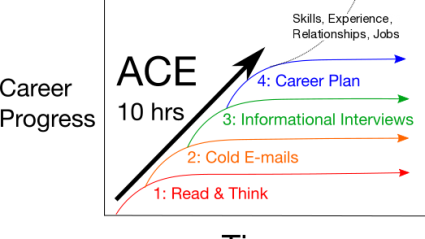Managing transitions is an issue that you will likely face throughout your career. Many PhDs choose to leave the bench to work in an office. While some things stay the same no matter where you work, some of the cultural changes that accompany a desk job may be surprising. Here are some identified by members of the Office of Intramural Training and Education (OITE):


Perhaps more so than ever, it seems that finding a well-paying and rewarding job can be a difficult task for young adults. According to analysis of the 2014 Current Population Survey, median income for people between 25 and 34 has decreased in every major industry since the Great Recession, with the exception of the healthcare industry.
What is this document and what should you include?

If you are the first in your family to attend college, you may have already experienced some challenges or concerns like: not knowing many contacts in the fields of science or medicine through your circle of family and friends or feeling like an imposter and wondering if you really belong in various professional groups or meetings. You are not alone. Research shows that first generation college students often have concerns like these, but research also highlights many of the strengths which first generation students bring to their lives and careers including:

Post written by Brad Fackler, MBA When you have primarily worked in an academic setting, any other work path can seem like a confusing and scary venture. Many scientists consider career options in industry; however they often worry about what this transition will be like. Here are the top ten myths I often hear about an industry career in science. x
1. I will have my project “yanked away.”

OITE’s Career Options Series will give you a snapshot overview of different career paths. The goal of this series is to help you explore a variety of different options by connecting you to new resources. A large part of making a good career decision is done by gathering information about that field. We encourage you to follow up this online research by conducting informational interviews with individuals in each field. Search the NIH Alumni Database to find alums doing similar work.
We've talked about which federal agencies and contractors hire scientists as well as how you can go about finding and reading jobs ads; however, if you are looking for a job in the federal government, you should also check out this video from OITE.

OITE’s Career Options Series will give you a snapshot overview of different career paths. The goal of this series is to help you explore a variety of different options by connecting you to new resources. A large part of making a good career decision is done by gathering information about that field. We encourage you to follow up this online research by conducting informational interviews with individuals in each field. Search the NIH Alumni Database to find alums doing similar work.


